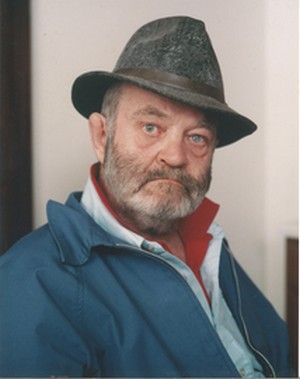TAT Forum
January 2017

Convictions & Concerns
TAT members share their personal convictions and/or concerns
A Cry from the Heart?
What exactly do we mean when we refer to "my heart" in a psychological context, or when we distinguish between what our mind tells us and what our heart tells us? The Chinese alphabet has just one symbol for both heart and mind, spelled as hsin or xin in different romanized versions of the Chinese characters. "Hsin Hsin Ming," the title of a famous poem by the third Chán patriarch Seng-ts'an, has been translated with variations such as "On Trust in the Heart" and "The Mind of Absolute Trust."
In English, mind has a primary meaning of "the element of a person that enables them to be aware of the world and their experiences, to think, and to feel; the faculty of consciousness and thought." A secondary meaning is that of a person's intellect. Heart, on the other hand, has a primary meaning as the bodily organ, with a secondary meaning of "the center of a person's thoughts and emotions, especially love or compassion," or more generally, the central or innermost part of something.
For the December 2016 TAT Forum, reader Liam F. sent this commentary of questions:
Is my heart empty, full or half-full? What fills my heart? What empties my heart? These questions seduce me. They speak to a curiosity I have about the content of my heart and what is my experience of my heart right now. What are the qualities of a full heart? Is it a sensory organ which is a feeling centre of being human? What prevents me from knowing a full heart?
Following are some responses from TAT members:
"Our heart always transcends us."
Rainer Maria Rilke
An empty heart? Is this loneliness? Or sadness? Or lack of delight? Or longing? Or lack of interest in the world?
Regardless of how it be labelled it is an indicator that something is not right. Something central is missing. It's a felt absence. It's the human condition.
This theme has been fodder for poets and spiritual seekers and saints for as long as poets and spiritual seekers and saints have existed, which is as long as humans have existed.
Augustine of Hippo in the fifth century, "Thou hast made us for thyself, O Lord, and our heart is restless until it finds its rest in thee," to Leonard Cohen, "It is in love that we are made, in love we disappear."
That there is the possibility of resolution of this incompleteness is the mystery at the core of human life.
Art Ticknor, while still a seeker wrote, "Why is my heart empty? … My heart is empty because I refuse to 'let go' or whatever it takes." Beyond Relativity, page 268.
This "letting go" is no easy matter. It's letting go of what we think we are in order to allow what we really are to fill our empty heart.
To doubt and question the validity of our usual sense of who we are weakens it. This makes room for our heart to be filled.
"The person who has an ability to love has a much greater chance of immortality." Richard Rose
~ Tess Hughes

The realm of human experience is a cosmos of confusion.
How did we get here? What are we supposed to be doing? Where are we going?
Where is here, anyway? In Thornton Wilder's play "Our Town," young Rebecca tells her brother she saw a letter that was addressed to "Jane Crofut; The Crofut Farm; Grover's Corners; Sutton County; New Hampshire; United States of America; Continent of North America; Western Hemisphere; the Earth; the Solar System; the Universe; the Mind of God."
God is absolute being—the absolute state of being—and the cosmos is aptly designated as "the Mind of God." But what are we? We can adopt comforting beliefs about our identity and our ultimate fate, and we can try to hide in the beliefs like the frightened ostrich burying its head in the sand (which National Geographic for Kids tells us is a myth), but it leaves us still feeling vulnerable.
The problem is that we don't know anything for absolutely sure. I read years ago about an Einstein thought experiment, which has stuck with me, asking about the speeds of two men moving toward each other in space. We can determine the speed of either man relative to the other man, but there's no absolute point of reference in the cosmos to determine their actual speeds.
The good news is that there is an absolute point of reference, and it turns out to be what we are at the core of being—i.e., our essential nature, "our face before we were born," and our true identity.
The bad news is that there's no Global Positioning System to lead us there. How to get there? Spiritual teachers throughout history have given differing advice. Rationally, it's a hopeless task. But also rationally, if we see clearly that it's the best hope for True Satisfaction—which may be an intuitional "computation"—then it makes sense to recognize it as our #1 objective regardless of any assumed improbability of success.
Curiosity is a pale euphemism for existential angst, which relies on not knowing our real identity. At heart we may be full and empty—neither and both. It's beyond thought, beyond feeling, beyond mind. It's Home—where we came from, where we're going, and where we've always been.
~ Art Ticknor

'Twas grace that taught my heart to fear
And grace my fears relieved.
~ "Amazing Grace"
I'll start with a bold declaration: our Heart is always filled—filled with the entire world, beyond all imagination! Although we often fail to appreciate it, we all serve as an amazing transformer between heaven and earth. We transform an empty, vibrant awareness into thoughts, feelings, beauty, joy, love, sorrow, suffering, fear, ad infinitum—in short, we are the creator of life. The raw stuff of life plays its music through us, and vice-versa. That said, few choose to embark on a journey that allows us to recognize and fully appreciate this gift. Perhaps to most, all of these words sound too abstract and lofty.
My teacher, Richard Rose, provided an enormous amount of direction, principles, and inspiration for spiritual seekers in finding their Heart, Love, Reality, Truth, the Absolute—whatever we wish to call it. For one, Rose maintained that we must apply our energy and attention to the spiritual search if we truly desire an answer to our deepest curiosity about life. He encouraged us to employ the reverse vector, which is a subtractive approach, an erosion of ignorance brought about by watching our thoughts and feelings from a superior vantage point that he called the Observer. And ultimately, for those who persevere, even this stepping stone dissolves….
Importantly, Rose said to go within and "employ whatever means necessary," leaving it up to each seeker to find the door to his or her Heart. Over the years, I have come to appreciate the myriad "means" at our disposal—the energy, grounding, and natural intelligence within our body; the resourcefulness, creativity, and reasoning skills of our mind; and the feeling sense of intuition and awareness. As we mature spiritually, a dynamic balance between body, mind, and Essence becomes our natural way of being.
A profound curiosity about Reality—or perhaps for most, profound suffering in life—often propels us to look deeply within. Our frivolous distractions, mundane desires, and participation in the seductive games of life will never permanently fill our heart. By contrast, looking within and cultivating our feeling-sense serves as the doorway that leads to our True Heart if we are genuine, sincere, and honest with ourself. By abiding in our Heart, we can richly experience the pendulum of our humanness and all its movements between an empty heart and a full heart.
~ Paul Constant

No Mind/No Heart
There is a heart. There is a mind. One could say the heart is an aspect of the mind, or turn around and say the mind is an aspect of the heart. I wouldn't argue with either view, as long as that view was derived from experience rather than reasoning. Reasoning is a helpful tool for setting goals and taking steps to achieve them, but never proved much good to me for finding answers in the spiritual domain—hypotheses, yes; but not answers. For example, what's the difference between the heart and the mind? Reason may build a structured explanation, beautiful in its symmetry, but it can come crashing down in a moment of insight.
I don't like to proclaim there is a heart and a mind. My raw experience reveals there is thought. That's it. Even perception is just thought. I can't know anything without thought. Thought is not necessarily words. It's any experience. The question I love for its piercing simplicity is: What of "you," upon close observation, is not experience/thought? What I see is that from the height of awareness to the tip of my toe, it's all thought.
But what's behind thought? What's in back of experience? If you look in an interior direction, now you are getting closer to the heart. The heart is a place, a transition point from nothing to something. Maybe. You'll have to look and find out. Where do you look? To the beginning of thought. Or look to its end. Whichever is more appealing—the rising up or the falling away. It helps greatly to find a way to make the search appealing. If not, you will gravitate to the latest headline to read, and story to finish, as if the damned, utter amazing mystery of our interior world wasn't enough to keep us entertained.
The title of a Gurdjieff book comes to mind: Life is Real Only Then, When "I Am." Which I most un-assuredly assure you means "The heart is only full when I rest near its fire." What is Gurdjieff's "I Am?" Look inside and see. What is rising up inside you? Get as close as you can to pre-verbal proto-experience. Standing in the fire, look and see if what you truly are is smoke or flames.
This probably hasn't helped you. I'm too democratic, wallowing in apologies for every side of the coin I've forgotten to acknowledge. I should get my Trump on, and tell you like it is. But I can't. Everywhere I look I see the confusion of words. Heart, mind, thought, reason, insight, perception, experience, interior world. Devote a chapter to each, and still it would miss the mark. There is only this one thing necessary: direct, interior looking and the finding of ways to entice ourselves to do so and means to improve our skill in so doing.
~ Shawn Nevins


TAT Foundation News
It's all about "ladder work" – helping and being helped
|
In Memoriam
The following obituary will appear in the Pittsburgh Post-Gazette: BURNS III, JAMES J., age 85, died peacefully on December 12, 2016. A Squirrel Hill native, he was the son of Attorney James Burns and Ann Muldowney. He graduated Central Catholic High School and studied philosophy and liberal arts at the Universities of Pittsburgh and Miami at Coral Gables. Although Jim was afflicted with physical handicaps and schizophrenia, he was blessed with a keen intelligence and generous nature. In the 1960s, psychiatrist Ed Mayer, impressed with Jim's intelligence, imagination, and verbal skills, encouraged his study of esoteric spiritual psychology through Edgar Cayce's A.R.E. Subsequently, Jim associated with other similar groups, including the TAT Foundation, where he was a regular speaker. He is best remembered for the wide-ranging self-knowledge discussion groups he headed, which overflowed with laughter and inspiration, and a book At Home with the Inner Self. Jim was a teacher and a true friend to the many who met him along the way. He was preceded in death by brothers Brian and William, and sisters Joanne and Mary Gail. Burial will be private. A memorial service will be held on January 7, 2016 at 1:00 at the Rapp Funeral Home, 10940 Frankstown Road in Penn Hills. The memorial service will be followed by dinner at Mohan's Restaurant, 7324 Saltsburg Road, also in Penn Hills. Please email if you're planning to attend. |
|
March 31-April 2, 2017 (Claymont Mansion) |
 Downloadable/rental versions of the Mister Rose video and of April TAT talks Remembering Your True Desire (details).
Downloadable/rental versions of the Mister Rose video and of April TAT talks Remembering Your True Desire (details).
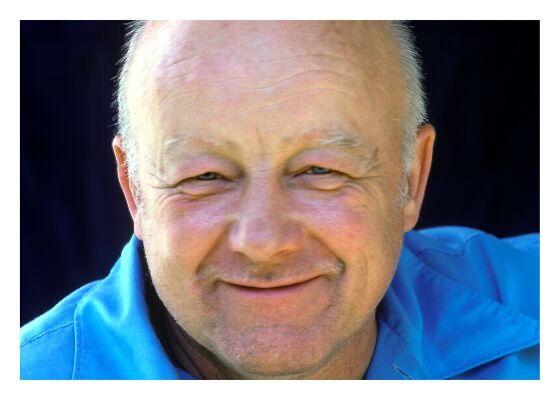
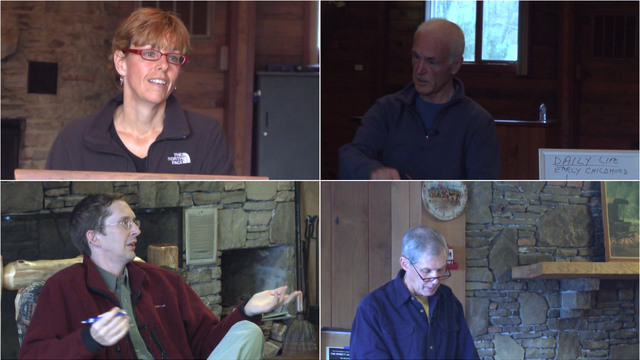
|
|
Local Group News
 Update from the Central Ohio Nonduality group:
Update from the Central Ohio Nonduality group:
We continue to meet on Monday evenings at Panera across from The Ohio State University.
~ For further information, contact
or
.
We're also on Facebook.
 Update from the weekly email self-inquiry groups:
Update from the weekly email self-inquiry groups:
Both the women's and the men's email groups are active, and we welcome serious participants.
~ Contact
or
.
 Update from the Gainesville, FL self-inquiry group:
Update from the Gainesville, FL self-inquiry group:
We continue to meet at the main Alachua County library on alternate Mondays and Sundays. We're looking into the possibility of a mid-January to mid-February weekend retreat at Horseshoe Lake Park in rural Ft. McCoy, FL.
~ Email
or
for more information.
 Update from the Galway, Ireland self-inquiry group:
Update from the Galway, Ireland self-inquiry group:
In addition to meetings in Galway city, satellite groups are now meeting in Cork and in Dublin. Tess Hughes, along with guest Art Ticknor, will be leading a retreat in Tallaght, Co. Dublin, on May 26-29. And in October (27th-29th), Tess and Bob Fergeson will be leading Awakening Together's fall retreat in Colorado Springs, CO. ~ See the Events page on Tess's website for details.
 Update from the Greensburg, PA self-inquiry group:
Update from the Greensburg, PA self-inquiry group:
We continue to meet every other week at our usual location with our several regulars.
~ Contact
.
 Update from the Lynchburg, VA self-inquiry group:
Update from the Lynchburg, VA self-inquiry group:
We continue to meet on Wednesday evenings and welcome inquiries.
E-mail
or
for information on the meetings.
 Update from the New York City area:
Update from the New York City area:
Three folks are currently talking about establishing a New York City group.
~ Email
.
 Update from the Pittsburgh, PA self-inquiry group:
Update from the Pittsburgh, PA self-inquiry group:
We hold public meetings on the 1st and 3rd Wednesdays of each month at the Pittsburgh Friends Meeting House in Oakland.
Since starting in September, we have one person who has attended & returned for more. We are postering Pitt & CMU's campuses, but will now also focus on the public library bulletin boards to address a different demography.
We also have private (i.e., by invitation only) confrontation meetings on the 2nd and 4th Thursdays. The topic for Dec 15 was from carefully selected chapters of Robert Wolfe's book, Living Nonduality. The topic for Dec 29 was Art Ticknor's 2-27-16 email to Ram regarding Rose's lecture notes: "Understanding" puts the mind back into snooze mode. If there's something we question because we "don't understand" it—or better yet, don't like it because it threatens our beliefs—then it may have some wake-up value. Parse the non-understood into workable bits. Roll them around in your mind. Chew on them. Discuss them with others who don't understand. The best rational homework leads to paradox. It may be necessary. But it's not sufficient. All retreat from illusion is the work of our intuition, which uses rational analysis and feeling but processes them at a refined level." ~ For further information, contact or .
 Update from the Portland, OR self-inquiry group:
Update from the Portland, OR self-inquiry group:
We had a one-day retreat on a Saturday in December. Eight people attended, and most everyone has been coming to the group meetings for a while. We did a talking stick exercise at the beginning focusing on the question "What are you looking for?"; one person led a session investigating the assumption of a physical, objective universe; we did several Harding exercises; and we had a lengthy group-inquiry session. It was good to be together, and most people seemed to get something from the day. We're optimistic about having similar events in the future.
~ Email
or
for more information.
 Update from the Raleigh, NC Triangle Inquiry Group:
Update from the Raleigh, NC Triangle Inquiry Group:
The Triangle Inquiry Group (TIG) meets on Wednesday evenings near NCSU.
~ Email
or
for information on local meetings.
 Update from the San Francisco Bay area self-inquiry group:
Update from the San Francisco Bay area self-inquiry group:
The Hollow Reed group is planning a weekend retreat in Middletown, CA on March 3-5 with special guests Paul Hedderman and Michael Taft.
~ Email
for details.
 Update from the Tallahassee, FL self-inquiry group:
Update from the Tallahassee, FL self-inquiry group:
We continue to meet every other Tuesday at the downtown public library.
~ Contact
,
or find the group on Meetup.com.
Members-Only Area
A password-protected section of the website is available for TAT members. The area contains information on product discounts for members as well as a substantial amount of helpful and historical information, including audio recordings, Newsletter archives, Retrospect archives, policies, conference proceedings, business meeting notes, photographs, and suggestions for ways to help.
 The following audio recordings from 2016 TAT meetings are now available in the members-only website area:
The following audio recordings from 2016 TAT meetings are now available in the members-only website area:
Please us if you have questions. (Look into TAT membership.)
Amazon and eBay
|
As an Amazon Associate TAT earns from qualifying purchases made through links on our website. Beyond Mind, Beyond Death is the latest of TAT's books to be converted to the Kindle ebook format. All of the TAT Press books are now available on Amazon in a digital format.
There's more background information in the TAT Homing Ground section below. |
Your Contributions to TAT News
TAT founder Richard Rose believed that working with others accelerates our retreat from untruth. He also felt that such efforts were most effective when applied with discernment, meaning working with others on the rungs of the ladder closest to our own. The TAT News section is for TAT members to communicate about work they've been doing with or for other members and friends. Please your "ladder work" news.

Humor
"One thing you must be able to do in the midst
of any experience is laugh. And experience
should show you that it isn't real, that it's a
movie. Life doesn't take you seriously, so why
take it seriously." ~ Richard Rose, Carillon
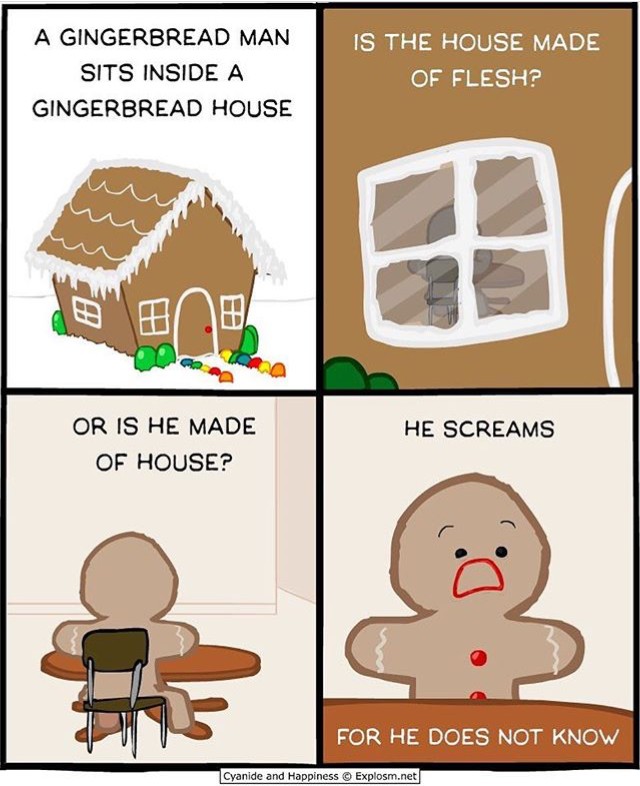
Submitted by TAT member Brett S.
Cyanide and Happiness © Explosm.net
 We're hoping to present more humor created by TAT members and friends here. Please
your written or graphic creations. Exact sources are necessary for other submissions, since we need to make sure they're either in the public domain or that we have permission to use them.
We're hoping to present more humor created by TAT members and friends here. Please
your written or graphic creations. Exact sources are necessary for other submissions, since we need to make sure they're either in the public domain or that we have permission to use them.

Inspiration & Irritation
Irritation moves us; inspiration provides a direction
|
"Wildflowers"
Walk into my fallowness
Till me deeply * Thanks, Robert. © 2016 Robert Wade. All rights reserved. |

|
This isn't a question—it's a fundamental reset. "No hurry, no pause" was introduced to me by Jenny Sauer-Klein (jennysauerklein.com), who, along with Jason Nemer (page 46), co-created AcroYoga. The expression is one of the "9 Principles of Harmony" from Breema, a form of bodywork she studied for many years. I routinely write "No hurry, no pause" at the top of my notebooks as a daily reminder. In effect, it's shorthand for Derek Sivers's story of the 45-minute versus 43-minute bike ride (page 190)—you don't need to go through life huffing and puffing, straining and red-faced. You can get 95% of the results you want by calmly putting one foot in front of the other. One former Navy SEAL friend recently texted me a principle used in their training: "Slow is smooth. Smooth is fast." * From Tools of Titans: The Tactics, Routines, and Habits of Billionaires, Icons, and World-Class Performers by Timothy Ferriss. Submitted by Shawn N., who said it reminds him of Richard Rose's essay on "Play" (following). |

|
Play
"Life in that regard is like love. Love should be happy, but we do not get a happy love unless we take it seriously. If we begin by taking love flippantly, we will end by getting dust and ashes out of it. It must be taken seriously, or it is not happy. Yet it must also be taken gaily, or it is not happy. So with life." Quotations by H.E. Fosdick, "Living for the fun of it," Reader's Digest, May 1930
I have always estimated play as a happy ingredient of efficiency. It is a known fact that the subconscious mind gives forth its inspirations under a lassitude of the conscious. By this I seem to discredit concentration. Concentration is not a strained method of forcing the mind upon a certain train of thought. We can best study a proposition when we are interested in it. And interest means ease. It is a harmonious corresponding of the mind,—either by memory, or reason, with environment. This reacting with environment is accomplished in reading, holding conversation, or by any other method which arouses the memory. The result of interest is frequently inspiration, which is often a sudden illumination of the memory, or the arriving congruency of two past memories hitherto unrelated. The subconscious inspiration, or the birth of innate subconscious knowledge to the conscious mind, differs from the memory inspiration, of course. To revert, the best work is that which is done with pleasure. Efficient work can be accomplished by practice; the act can be repeated until it is finally done with ease. |
Please
your thoughts on the above items.

Reader Commentary
Encouraging interactive readership among TAT members and friends
|
A reader wrote that what would make the Forum more interesting would be: Hearing from people who are searching – and have questions instead of those providing endless advice and "answers." What challenges they are facing. What their doubts and questions are. How they perceive their path is going. What they are doing in their lives. Where they think they will end up. Etc. etc. Can you help make the Forum more interesting? |
 Last month the Forum staff asked the question: What is thought? Is it an asset or a hindrance on the spiritual path?
submitted also by Paul C. in his response for the July 2016 TAT Forum inquiry.
Responses follow:
Last month the Forum staff asked the question: What is thought? Is it an asset or a hindrance on the spiritual path?
submitted also by Paul C. in his response for the July 2016 TAT Forum inquiry.
Responses follow:
 From Tyler T:
From Tyler T:
Is thought a form, an energy, an expression, the harbinger of depression? Is following it to its source the way to win the day? Ha! All more thoughts! Just know in the Heart, what you believe you will perceive. Believe yourself to be a body? A liberated soul? A one-eyed mole? Congrats, that Reality becomes yours! But when you are peeled away from all thinking and no longer give one jot for any passing thought, you will drop your tireless search for me, and can finally relax and just be and be and be.
 From Rob:
From Rob:
The question is asked 'What is thought? Is it an asset or a hindrance on the spiritual path?' and though it's not the habit at present to evaluate things in this way, it does feel curious and fun to look freshly at this. It might be useful to be aware that what is considered a path varies from one to another. For you the path may be one of acquiring and refining or it might be observed that it is a path of letting go. This speaker only really groks letting go and favoring presence. The call to acquire and refine is totally fine but it may not be explored here.
Is it important to really know what thought is, or might it be curious right here and right now to find the source? The source from which thought comes. The thinker. What is the nature of this curious thinker? Can I spend some time innocently and freshly looking for this? Coming back to silence. With curiosity and a sense of playfulness there is this looking right now. There is no knowing of what answer will come. Maybe today this moment no answer is needed. Now looking again in silence and asking … where is this source of thought? The answer may not be your answer. Is it the answer that matters, or is it the fresh, alive, alert and dynamic attention that revives us the most?
So is thought a hindrance on a spiritual path? I really want to know how to find this answer. Is this found in a text or will this answer come from a spiritual authority? To silence I come back and sit with this inquiry. Again this playful and innocent looking comes. In looking right now nothing comes up. Just emptiness. But we really want to dig deep and shake something out of the emptiness so there is asking again. The question is rephrased with not many words and feels more like a preverbal expedition. Back to silence with this intent… Is there really a path? It doesn't feel totally accurate to say yes. Okay, that's not important. I am in pain. I am anxious and I want to understand how to make it stop. Will no thoughts set me free? Dear. That pain… Love this pain. Love it like it is your very own sweet child. If there is a path then it includes everything that we've spent so long trying to avoid. It is always appropriate to indulge this bright aware and attentive compassion for the one going through so much as the room is made for vastness.
Right here, right now is the only opportunity to recognize and enliven the truth of who and what you are that is prior to thoughts. If at some point something more direct is called for, then we become ready for this. This which is so simple the intellect wont grasp it. This that the reader recognizes this moment.
Other questions are posed. We have been investing some truly nourishing attention into empty, alive and spacious vastness to look for answers to previous questions. The curious byproduct of this deep dive is a natural softening and sweetening. An enlivened stillness. This may be fitting for these next investigations. "What does love mean to you? Is it helpful or a hindrance on the spiritual path? Or is it irrelevant?"
We again should clarify that what is spoken of here is a path of removal. There are other callings but that is not pointed to here. Love is a deeper richer awareness of what exists beyond what we normally call me. This awareness is so simple. So innocent. There is an element of embracing or taking in. It's a shame to make this a topic when it's not. You are love. This is already so. Discussion here will never make happen what already is. We already are this alive knowingness. This recognition. To be clear, the speaker is no authority on this. There are living masters of this domain. Words here can do no justice. Diving this deep into presence seems to have brought silence more fully to the surface. And that is so precious. Best to just be. Just be.
 From Sunil V:
From Sunil V:
Thoughts of love –
Thought is a label attached by the brain to one of its apparent functions: thinking. It names breathing to the functioning of lungs, seeing to eyes, hearing to the function of ears and so on. Love is a special thought but another label for the thought that tries to explain attraction felt by a human body. Similar attractions occur all throughout the universe but they are labelled differently by the brain, e.g., gravity, magnetism and electrical energy.
If we try to go deeper into the meaning of the label "thought or love", we quickly end up at the bottom of the rabbit hole. This is not unique to this label but to all names and labels. Take "table", a word used to describe the functioning of a rectangular object made of something called a tree, which is made of something called molecules, atoms and then strings and eventually energy. What is energy, another question at the bottom of the hole, begging for what philosophers call the "one free miracle"?
I wrote an essay on the "nature of thought" here in April 2011 (check the archive). My thoughts (pardon the pun) have changed somewhat. I used to agree with the then-experts that thought was a function of the brain; hearts pump, lungs breathe and brains think. But more recent neuroscience research shows that thoughts actually follow a human act, not precede them in most cases.
The most appealing albeit controversial theory about thoughts, memory and other seeming brain functions is that they actually exist outside of our organic brain. An event or trigger brings a thought into consciousness and the brain takes ownership of this calling it "my" thought. It turns out upon serious looking that there is no I, you or self as we know it, and so anything being "my" thought is incorrect. "You" don't have a thought, but thoughts do happen. They are in that sense the same as breath which happens or walking that happens. It is part of living that happens without a me or you.
Let's look at it another way. How can we stop or significantly reduce thoughts? Meditators will tell you and neuroscientists will confirm that by retracting your attention from the senses and concentrating on one object such as breath, you can indeed reduce or even eliminate thoughts for long periods of time. Also, in deep sleep when the brain activity has slowed, thoughts do subside.
That means there are two essential interactions that spur thoughts: between the brain and one of the other five senses. So thoughts happen as a result of seeing, breathing, sitting, eating, sensing. It is an integral part of living. The brain calls this a thought and claims it as its own creation. There is no evidence to support that the brain produces thoughts. Most likely it is aware of thoughts after the fact. It does the same thing to other acts of life. Life happens and the brain claims it is "my" living.
Love is another label or name of a special thought. Attraction between two objects is a fundamental aspect of the material world. Negatively charged electrons love positive protons, particles love other particles and planets love the sun. We call it gravity. It takes extra energy to repel things from other things. But the ground state, when all energy has been spent, is love. When this primordial feature touches consciousness, it is expressed by the brain as the word love. Everything is part of this one whole, which is in love with all of manifested creation. But rocks can't express their love of water or trees their love of the sun, the same way humans do. So love becomes a big word instead of a very natural feature of existence.
Love is the very nature of consciousness. It too just happens as life happens. Until a human brain becomes aware of it and claims it to be its personal thought of love. There is no such thing as "your" love. There is just love. Just as there is no "your" thought, there is just thought. There is no "my" life, there is just life.
Is thought, or love (a special thought) a hindrance or help on the path?
I find the "I" thought to be a great hindrance. These are thoughts that have incorrect ownership attached to them. Just removing the personal connection makes them quite tolerable. Even when "your" house is on fire, you will do a better job to try and put out the fire by considering it just another house. This works well in most aspects of living or loving. When this understanding of the true nature of thought takes hold, it is of great help in keeping me true on the path.
 From Wyatt W:
From Wyatt W:
What is thought? Is it an asset or a hindrance on the spiritual path?
It's a tool that can act as either. An asset when it's used to pursue and elicit self-awareness, inspiration, and insight through doubt and questioning. A hindrance when it's used to fortify and defend identities (beliefs, boundaries, stories).
 From Soanna P:
From Soanna P:
It takes thought to reply to this question. It appears to me that thought is necessary in the living, even in knowing of being aware. Can we say that thought is also consciousness in movement?
When getting up from sleep, thought is there almost instantaneously, and I cannot get rid of it. It can only be changed or deviated from, but it comes back. I have no control of it. It can invade me, and sometimes stick to me for a while before I can put it away. In this way it is a hindrance to the path.
However, thoughts can help creating love and peace in you if you put it to work towards that. And Love is what everybody wants.
 From Tim H:
From Tim H:
"All that I have written seems like straw compared to what has been revealed to me." –Saint Thomas Aquinas.
This was said by the man who in no short order spent his monastic career trying to reconcile Faith and Reason. He denied a separation between Faith and Reason as he denied a separation between man and God. He set out to prove this, forming a philosophy, Thomism, in the process.
As a means of knowledge, thinking is perhaps not a direct assault on truth or self definition, but certainly a strong one.
The utility of thinking is perhaps best viewed in as much as how strongly are we identified with our thinking? Are we deriving satisfactions and self-concern in our role as a thinker? Can we allow what we learn on the path to take us where it's pointing? Even if that's away from our self-satisfied positions? This might be a blind spot for the thinker, as there seems to be not too few of us who are separated from Faith due to having figured it all out. We tend not to give anything up if it's paying the bills and we are deriving benefits from it. So it can be doubly hard to leave the library of the head even if we want to.
When I was asked to write for the Forum, my first thoughts were in defense of thinking. The arguments and the facts flowed pretty freely. This wasn't honest. I've had a taste of faith in my life and had many admonitions regarding thinking over the years. I'm reminded of Bob Fergeson's "There has to be a point where thinking stops. Work has to go below that. It has to become something that is a task of the attention rather than that of the moving mind."
 From Ike H:
From Ike H:
To me thought is more than mental chatter. Any object of consciousness, i.e., any experience, I take to be thought. So feeling is a form of thought, and when I say "my feeling is indescribable," it refers to my lack of imagination, vocabulary, or ability to put into words what a more-capable poet would have the capacity to describe. Repetitive mental chatter is an example of energy-sucking thought in my case. Yet, ways out of life's impasse have come also in the form of thoughts that result from thinking clearly. That is, realizing that the impasse feeling is constructed out of, and supported by, certain thoughts, which are assumptions that have gone unnoticed and can be brought to light. Voicing these thoughts in words helps me consider other equally plausible angles. E.g. Hopeless thought: "I'm dying." Counter thoughts: "I'm being born," or "I'm metamorphosing." Introducing these other concepts doesn't resolve the problem, but they help break the hopeless feeling.
Most importantly to me, the existence of thought is not the problem, but it signals or expresses the philosophical enigma: I have objects of consciousness (thoughts), but I seemingly have no access whatsoever to the subject (thinker). The oft-used conclusion, or rather, cheap-booze escape, that "There is no thinker, no one here thinking the thoughts. Ooh ahh I'm so enlightenedny," doesn't cut it for me. It sounds like settling for the prostitute around the block because my dream princess gives me the cold shoulder.
 From Bill R:
From Bill R:
Thought is drama. Thought is neither an asset nor a hindrance on the spiritual path; thought is integral to the theater of human life. Without thought, the question, "What is thought?" would never be posed, but, as well, there would be no spiritual path. The spiritual path is a quest to reconcile thought with experience, and it is thought that communicates to the relative self the idea that the self is incomplete and in need of reconciliation to that which is intuited, the infinite and eternal. No thought, no drama, no need, no path.
There are those who learn to stop thought and reside, if only for a short while, in a more direct state of awareness. But this temporary state is not the Absolute. It is, however, indicative of possible higher states of awareness, and may provide the inspiration that Absolute awareness is possible. Understand, therefore, that thought is duality, is differentiation, is drama, and without thought there is no quest.
Love is self. It is the projection of self, the reflection of self, the invigoration of self, the expansion of self, the recognition of self. Asking if love is a help or a hindrance on the spiritual path is akin to asking if a butterfly is a help or a hindrance to proper tire pressure.
 From Bill K:
From Bill K:
Thinking is just one more aspect of ourself which we need to discipline and align to some life direction. Mr. Rose referred to this orientation of life's efforts as a vector, the resulting direction and intensity based on how effectively we align as many aspects of our life as possible. But thinking can also play an important role especially if focused on topics or questions that cannot be addressed or answered by rational thinking. This can require less utilized and more refined faculties solving the problem, abilities that likewise come into alignment with the direction or vector of our questioning. I believe also that as one weighs concepts and thinking for their level of truth, the rational mind may integrate increasingly with more subtle abilities to discern and therefore be transformed into something more than just a rational thinking machine.
|
When you meditate, what constitutes a "good" session? Submitted by Bill K. in his response for the July 2016 TAT Forum. Please your responses for next month's Reader Commentary. |

 Richard Rose described a spiritual path as living one's life
aimed at finding the meaning of that life.
Did you find anything relevant to your life or search in this month's TAT Forum?
Richard Rose described a spiritual path as living one's life
aimed at finding the meaning of that life.
Did you find anything relevant to your life or search in this month's TAT Forum?
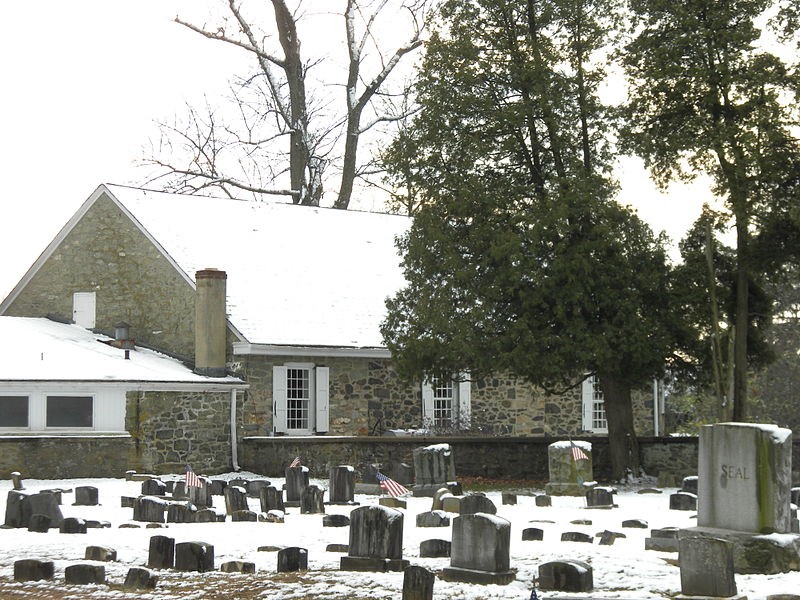
The Religious Society of Friends Meeting House in Birmingham, Pennsylvania
We like hearing from you! Please
your comments, suggestions, inquiries, and submissions.
 Sign up for notices of TAT's four annual events and free
monthly Forums by email on our .
Sign up for notices of TAT's four annual events and free
monthly Forums by email on our .

Founder's Wisdom
Richard Rose (1917-2005) established the TAT Foundation
in 1973 to encourage people to work together on what
he considered to be the "grand project" of spiritual work.
Introduction to the Albigen System
The following transcription features rare material from an early lecture of
philosopher, poet and author Richard Rose. The talk, based on the speaker's own
experience, describes a way of life aimed at understanding that life … a
self-directed retreat from untruth … a common-sense, non-dogmatic approach to
spiritual realization.
Part 5 of a 1977 talk given by Richard Rose in Cleveland, OH (continued from the September 2016 TAT Forum, the October 2016 TAT Forum), the 2016 November TAT Forum), and the 2016 December TAT Forum):
Q and A, continued:
Q. In Alcoholics Anonymous, how does it work that an alcoholic gets help with his addiction by helping somebody else who is sicker than he is?
R. This is the whole spiritual system. This is not only Alcoholics Anonymous. Alcoholics Anonymous was founded by an enlightened man. He was an alcoholic who became enlightened; that was Bill Wilson. But you can't progress too far spiritually—we didn't dwell on this tonight—without doing something for somebody else. Why this law exists, I don't know. There's a book of fiction, The Magnificent Obsession, and this is the theme. That man only climbs when he places someone else upon his step. This is the true reason why all esoteric or spiritual or religious organizations should exist. They should not exist for the sake of the organization. They should exist for the fact that the organization is a medium to help people; they take another step. So it's the same thing. Some of the most enlightened people probably in this country are people who were alcoholics.
Q. For any activity to have value, it will be good not only for you but for other people too?
R. Well, I don't know, you're taking in a lot of scope.
Q. That it's service, basically, is what I'm saying.
R. I don't go at it from that angle. That's not the idea. I don't want to get into the idea that we're serving mankind.
 The complete part 5 (and end) of the talk
The complete part 5 (and end) of the talk

A New Home for TAT
... A spot on earth where people can do retreats and hold
meetings; where the emphasis is on friendship and the search.
The Big News
TAT signed a contract to purchase the 11-acre Roxboro, NC property mentioned in the November Forum. After much consideration, it was decided purchasing land was a better long-term strategy than the West Virginia property-leasing arrangement we investigated in November. Several TAT members visited the Roxboro location, and all report it as a nicely-wooded and quiet location.
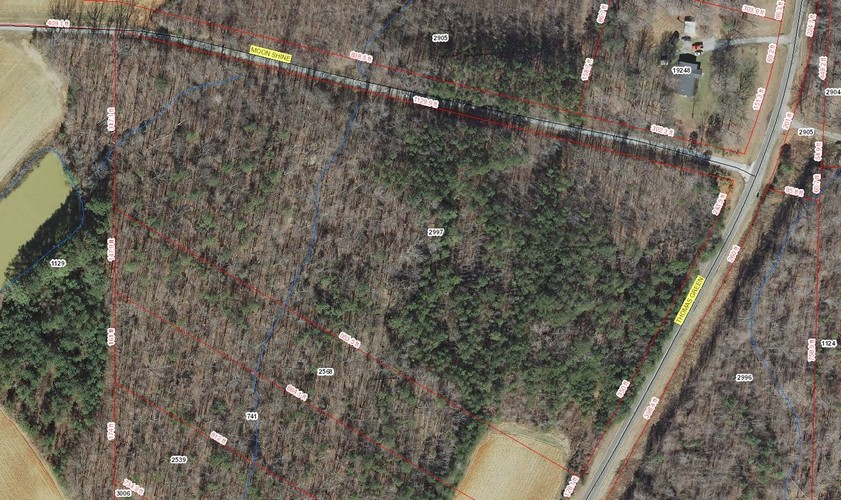
Hydrology (steams marked in blue) map of the Roxboro property (2997 plat).
Now that a land decision has been made, attention will shift to further refinement of the building plans. I hope to have drawings to share in the next month or so.
Over 95 people have contributed funds to this project, a number of whom live in other countries or are not even TAT members. Our dream is getting very close, so now is the time to step forward and throw your support behind our New Home. Funds raised are now 82% of the goal, so we need $45,000 more to reach the $250,000 goal.
To invest in the Homing Ground project, mail a check made out to the TAT Foundation (for instructions on mailing a check, please the TAT treasurer).
Or you can use PayPal (though we lose 2.2% of your donation to PayPal fees) by choosing the "Make a Donation" button below or the Make a Donation button on our Homing Ground page. TAT is a 501(c)(3) not-for-profit educational organization and qualifies to receive tax-deductible contributions.
Your Amazon purchases in December added another $100 to our total which is now $1297 simply from using the TAT link to access Amazon.com. (To keep the link handy for Amazon purchases, bookmark the Homing Ground page in your browser or add a shortcut on your desktop. Just click the Amazon link on that page and order away.)
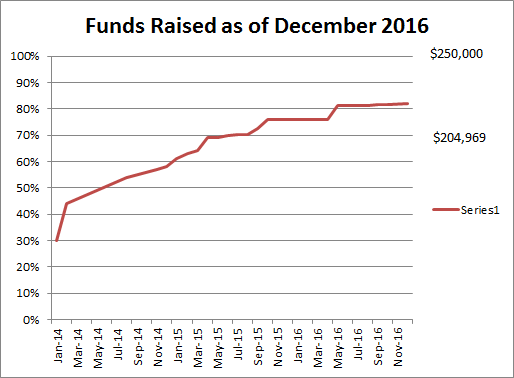
I thank each of you who have donated and pledged and look forward to the day we set foot in our new home. ~ Shawn Nevins, project coordinator.
Remember -
The Purpose:
- Provide a place for TAT's four yearly meetings.
- Provide a space for members to spend time in isolation retreats.
- Provide a place for TAT members to hold group retreats.
- Eventually, to create an ashram – a center where people could live for an extended period, and have a teacher and fellow seekers onsite or nearby.
The Vision:
- Either a wing on a house large enough for a meeting space for seventy participants or a separate building.
- A cabin for isolation retreats.
- Space for a live-in caretaker.
- Location within 1.5 hours of a major airport.
- A reasonable distance from Columbus, Pittsburgh, Raleigh, and the DC Metro areas.
Shawn Nevins
on behalf of the TAT Trustees
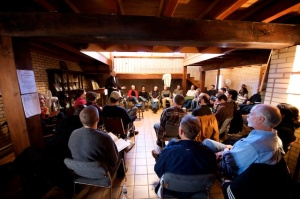
Did you enjoy the Forum? Then buy the book!
Beyond Mind, Beyond Death is available at Amazon.com.


